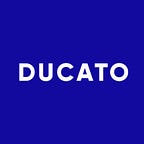Column of Decentralized Finance Standards from KR IT Times
[Serial Column-3] Decentralized Finance Standards, Urgent
We report a series of columns on ‘Understanding of Decentralized Finance’ by editorial writer Kim Hyung-joong of this magazine. Today’s article is about the third ‘Decentralized Finance Standard, Urgent.’
1. Decentralized Finance: The Strange World
2. Decentralized Finance: CBDC’s Achilles’ Case
3. Decentralized finance standards, urgent
Editorial Writer Kim Hyung-joong / Special Professor (Graduate School of Information Security, Korea University), Director of Cryptocurrency Research Center
From 2020, the decentralized finance (DeFi) market has exploded and products have diversified, among which is a new product that entrusts bitcoins and borrows bitcoins.
It is common to borrow cash from banks as collateral for deposits, but I haven’t seen any products that borrow cash from banks with cash as collateral.
I couldn’t find a product that directly lends the stock as collateral, so I have to buy the stock again by borrowing cash as collateral. There are some tasks that are systematically impossible for each other due to the interests of the Korean financial industry.
There is a system called a lender that borrows stocks and pays them back, but instead of entrusting the stocks as collateral, they leave cash called deposits. When stock prices go down, they borrow other people’s stocks, sell them at high prices, and make profits at low prices.
If you can’t afford to buy more bitcoins when the price of bitcoin is expected to rise, look to products that borrow bitcoins with bitcoin as collateral.
The price of bitcoin exceeded 60 million won and is now at around 50 million won. If you have 10 bitcoins, you have an asset of 500 million won.
You can borrow 9 bitcoins with 10 bitcoins as collateral. Converted to 50 million won each, it is 45,000 won. Since bitcoin is not a financial product, you have to borrow bitcoin rather than cash.
Suppose the bitcoin price has risen to 100 million won. Since you borrowed 9, at this point, if you redeem 4.5 bitcoins without considering interest, then 4.5 bitcoins will remain yours.
It’s not strange to borrow 9 and repay 4.5. When it is 50 million won, 9 sides were 450 million won, and when it is 100 million won, 4.5 sides also have the same value, so it is correct to repay 4.5 when converted to principal.
The price of bitcoin doesn’t just rise, but it also falls. When the price of bitcoin plummets, the institution that lent bitcoin is counter-trading.
Take the case of stocks, for example, when the price of stocks bought through loans plummets and the value of the collateral falls, a securities company forcibly sells stocks as collateral, which is called counter trading.
The collateral maintenance ratio is the index that is used as a standard for counter trading. If the total asset value (for example, the value of the stock entrusted as collateral + the value of the stock purchased with credit) is less than 140% of the loan amount, a counter sale notice is issued.
When the total price of 19 bitcoins entrusted as collateral and 9 borrowed coins reaches 630 million won, 140% of the total collateral of 450 million won (i.e., when the bitcoin price falls to 33.16 million won), counter-selling will be initiated.
If the bitcoin is not repaid, the institution sells it for 630 million won, recovers 450 million won, and returns cash equivalent to 180 million won or bitcoin equivalent to the price.
As the price of bitcoin continues to rise, the demand to borrow bitcoins increases. TVL is an indicator of demand, which stands for Total Value Locked.
In Korea, there is a company called Delio that lends bitcoins as collateral for bitcoins. Delio uses the term Total Value Utilized because it uses bitcoins from external organizations rather than Delio’s bitcoins. Delio’s TVU last year was 300 billion won, but it is said that it has already surpassed 1 trillion won in February of this year.
In Delio, the Loan to Value(LTV) is 90%. You can entrust 10 bitcoins and borrow up to 9. The handling fee corresponding to interest is 0.044% per day, which is equivalent to 16% annual interest.
Before the decentralized finance (DeFi) market grows larger, guidelines for consumer protection such as the LTV, the security maintenance ratio, the time of notification of counterparty trading, handling fees, etc. must be made urgently.
[DUCATO Official Websites]
Homepage: http://ducato.io
Telegram: https://t.me/DUCATO_Channel
Medium: https://medium.com/ducato
Twitter: https://twitter.com/DUCATO_DeFi
Facebook: https://www.facebook.com/DeFi.DUCATO
Linkedin: https://www.linkedin.com/company/ducato-defi
YouTube: https://www.youtube.com/channel/UCB1p7-VVW51vEm02gQbb9vA
[Delio Official Websites]
Delio: https://www.delio.io
Delio Cloud: https://delio.cloud/
Telegram [Global]: https://t.me/happy_delio
News Channel: https://t.me/happy_delio_news
Blog [KR]: https://blog.delio.io
Facebook [KR]: https://www.facebook.com/delio.io/
Medium [Global]: https://delio-io.medium.com/
Twitter [Global]: https://twitter.com/happydelio
Instagram: https://www.instagram.com/happydelio
YouTube: https://www.youtuhttps://www.youtube.com/channel/UCDvdHl0t9GEcUfWclJEnDXA
